References to Internet websites (URLs) were accurate at the time of writing. Neither the author nor New York University Press is responsible for URLs that may have expired or changed since the manuscript was prepared.
For Library of Congress Cataloging-in-Publication data, please contact the Library of Congress.
New York University Press books are printed on acid-free paper, and their binding materials are chosen for strength and durability. We strive to use environmentally responsible suppliers and materials to the greatest extent possible in publishing our books.
This book has been close to ten years in the making and as with all academic projects, could not have been completed without the support of various groups of people. I want to thank my family for supporting me through the process, including housing and feeding me during extended stays at the archives, beginning with my parents, Annemie and Klaus-Jrgen Melzer, who unfailingly have been there for me, all my life. I also want to thank my oldest sister, Kathrin, whose input into parts of this book has been invaluable. I cannot imagine myself having done this work without the encouragement of her and my two sisters Nanette and Temesgen and my sisters-in-spirit, Marina Walter and Natali Schirm. A special thank you to Michelle Matisons, whose friendship has been central in making me begin this journey; her radical dedication to social justice and creative thinking continues to be influential on my work.
Thanks to research grants from the College of Liberal Arts at Temple as well as a summer research grant and a sabbatical research year from Temple University, I was able to visit archives in Germany and the Netherlands and travel to conferences. My mentors and friends at Temple have been my intellectual and emotional backbone during this project. I enjoyed Kristi Brians friendship and grounding presence in times of transition; since her move, they are sorely missed. Rickie Sanders has been a good mentor and friend for the past ten years. Beth Baileys smart advice and consistent support of my endeavors are much appreciated. James Salazar has been a wonderful friend with a bagful of tricks who greatly facilitated the publication of the book. Laura Levitt has been unfailing with her backing of me and of my work, and I am grateful for her extending her support and friendship to my family. I greatly enjoyed smart conversations with Margaux Cowden about feminist theories of violence and appreciated her thoughtful input into my writing. I also want to thank my department chair, Louis Mangione, whose advice and support in the past two years have been central to the completion of this book. Outside of Temple, I am also extremely grateful for the support and encouragement I have received from my mentors of many years, Cynthia Enloe and Sabine von Dirke. Their patience and generosity with their time and energy have been crucial in moving this project forward. Thea Renda Abu El-Hajs feedback and our conversations in the local coffee shop are greatly appreciated. Thank you also to Robbie von der Osten, whose intellectual and personal interest in me and in my family has been a constant source of inspiration and encouragement to me.
I have had the opportunity to work with several amazing intellectual communities during the development of this project. As a research associate with the Five College Womens Studies Research Center at Mt. Holyoke College in fall 2005, I was able to conceptualize this project, and I fondly recall inspiring conversations with Mary Strunk and Coralynn Davis on women and violence. A few years later, a Faculty Fellowship at the Center for the Humanities at Temple (CHAT) in 201011 connected me with my amazing junior colleagues Naomi Schiller, Ashley West, and Judith Levine; I am grateful for their encouragement and feedback that year. In 201213, I had the privilege of spending my sabbatical year as a research fellow at the Newhouse Center for the Humanities at Wellesley College. It would be difficult to imagine a more spirited, intellectually challenging, and personally rewarding group of research fellows, whose input into my work has been invaluable. Special thanks go out to Carol Dougherty and Jane Jackson. I am particularly grateful to Genie Brinkema, whose brilliance and generosity directly impacted the theoretical underpinnings of this book. I also want to thank the best post-doc writing group one can ask for, Yasmine Ramadan, Alex Orquiza, Elizabeth Falconi, and Nikki Greene. I am particularly grateful for the friendship, support, and encouragement I received from Nikki during that year, and for her companionship during odd working hours when no one else was around. Thank you also to Quinn Slobodian, whose input into book about my next research project. A special thank you goes to Karen Beckman.
During the past years, I have been grateful for the less formal but crucial intellectual community of the Wanderzirkus, a wonderful group of people I have been meeting at conferences and with whom I have been presenting on numerous panels on women and political violence. Their work and our conversations have been central to this book, including those of Irene Bandhauer-Schffmann and Vojin Saa Vukadinovi. A very special thank you goes to Dominique Grisard, whose encouragement and feedback has influenced my thinking on women and violence in important ways. Her friendship and consistent belief in what I have to say mean a lot to me. Thank you also to Clare Bielby, whose friendship and thoughtful engagement with my work has helped me move this book forward. I feel lucky to have such brilliant and generous colleagues as friends.
Anyone working with archival material appreciates the assistance and logistical support of people who run archives. I am especially grateful to the late Herrn Stolle, who during his time at the Cilip-Archiv in Berlin actively assisted me in my early research on women in the RAF and Movement 2nd June. Thank you also to Herrn Schwarz and his colleagues at the Hambuger Institut fr Sozialforschung, and to Herrn Lnnendonker at the APO-Archiv in Berlin. I also appreciate the work of the staff at the International Institute for Social History in Amsterdam Archive, who enabled my research in their archives. The work of (often volunteer) staff in the archives of the community-run centers Papiertiger in Berlin, Rote Flora and the feminist Denktrume in Hamburg, and the Infoladen in Frankfurt cannot be valued enough. Their activist work and dedication to preserving alternative political histories is amazing and inspiring.

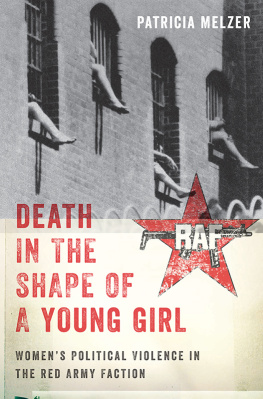
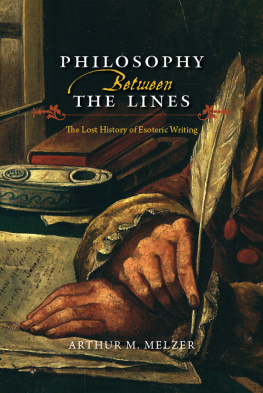

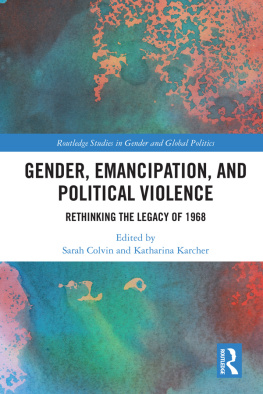
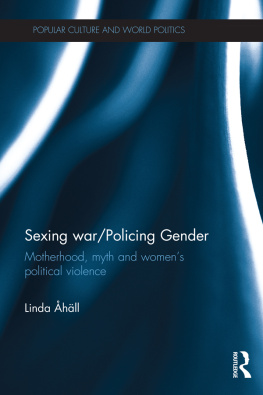
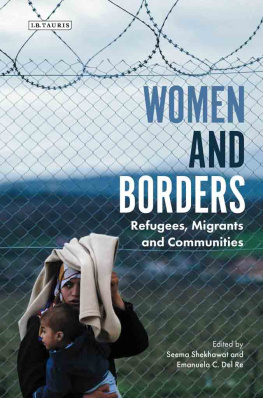
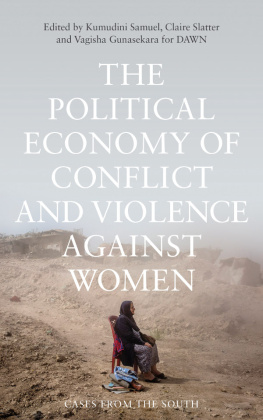
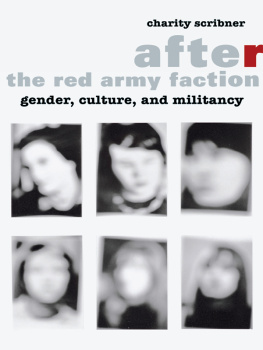
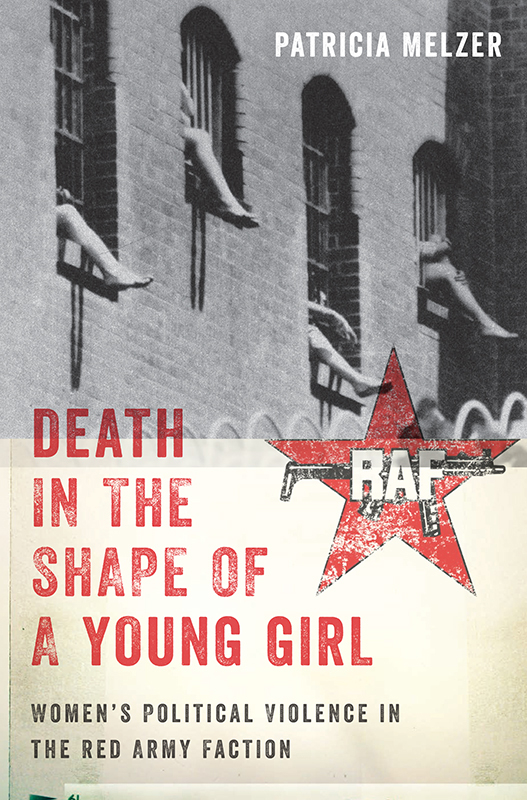

 NEW YORK UNIVERSITY PRESS New York and London
NEW YORK UNIVERSITY PRESS New York and London